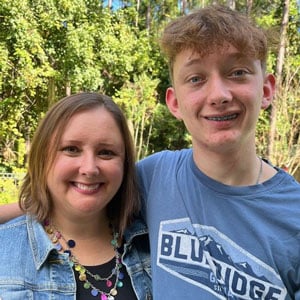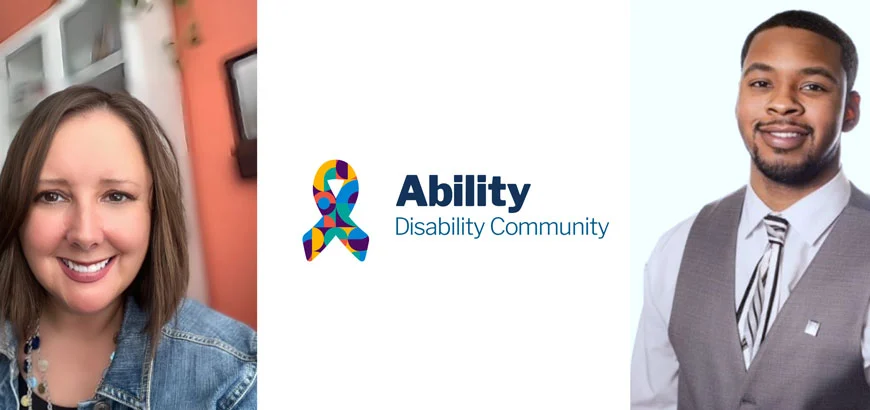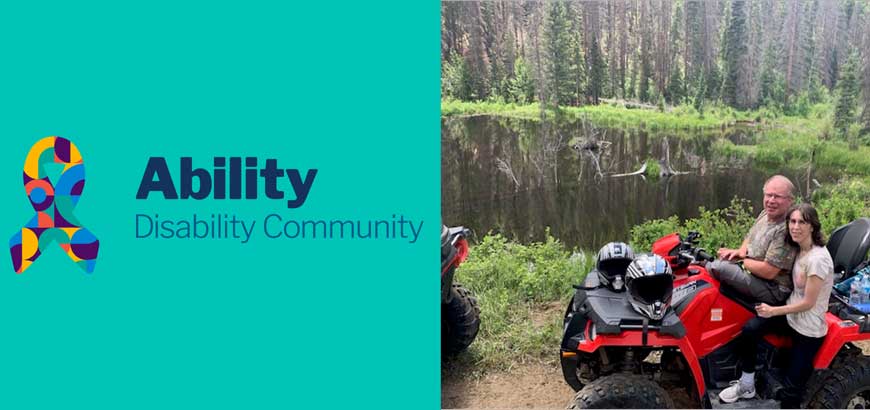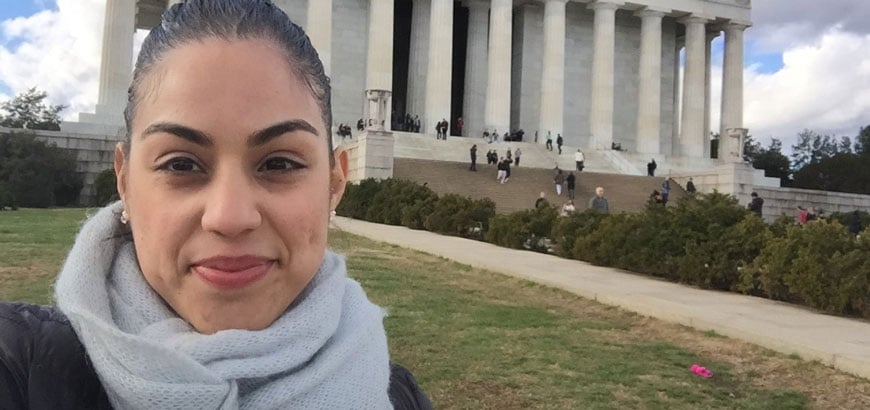Read time: 5 minutes
Famous author and businessman Stephen Covey once said, “Strength lies in differences, not similarities.” At McKesson, we recognize that every employee is intrinsically valuable to our organization’s collective success due to their diversity of thought, skill, background and experience.
As part of our broader commitment to fostering a workplace where every individual can thrive, our Ability employee resource group (ERG) is dedicated to empowering and connecting employees with seen and unseen disabilities, as well as their caregivers. In honor of National Disability Employment Awareness Month, Ability is spearheading initiatives under the theme, “Access to Good Jobs for All.” Through resources, education and advocacy, Ability is not only raising awareness, but actively driving change to make our workplace more accessible and inclusive.
Meet two McKesson employees who have found a community of understanding, connection, and empowerment – both professionally and personally – through Ability.
Turning “Disability” into “Ability”
For teenage Cor’Rales Dupree, high school football was life.
“I’m an athlete by nature – I’ve always been very competitive,” he explains.
But when a tragic incident claimed his left leg at age 16, the high-impact sport was no longer in the cards. Undeterred by his new reality of living with a prosthetic leg, Cor’Rales channeled his competitive nature into adaptive sports – sports for people living with disabilities – and discovered his love for wheelchair basketball. Ultimately, his skills on and off the court landed him college and graduate school athletic and academic scholarships.
“People say this is a disability, but I don’t see it that way, because life with a prosthesis doesn’t disable me,” he says. “If anything, it’s actually taught me to be far more appreciative of all the things I have in my life.”
One of those aspects is his career at McKesson. As a primary care account executive for McKesson Medical-Surgical, Cor’Rales spends his days meeting with customers, a role in which he takes great pride as it allows him to share the value McKesson can bring to their businesses on a daily basis. His position within Medical-Surgical has opened new doors internally as well – including to the Ability ERG.
“Ability is an ERG that has a special place in my heart,” he says. “I really appreciate when a company has a community in place to highlight people’s work ethic, as well as their ability to overcome challenges in life while continuing to excel in their jobs.”

Paige Mater, Ability’s national membership engagement chair, supports Cor’Rales at the 2024 National Wheelchair Basketball Tournament in Richmond, Va.
He explains that Ability recognizes that even if people have required adaptations to do their jobs, they promote the message that those employees can still do a really great job once they have those adaptations in place. Knowing he’s one of many that Ability supports is a unique differentiator that other companies, in his experience, don’t necessarily offer.
“McKesson is very innovative, forward-thinking, and offers a collaborative work culture,” he says. “Because we have ERGs like Ability, we’re able to bring together people from various backgrounds, situations and ways of thinking to come up with great new ideas for the company.”
Through Ability, he’s also connected with employees from other parts of the business, equipping him with a more well-rounded understanding of the capabilities McKesson brings to the table and, ultimately, allowing him to better support customers.
In addition to the mentorship and career opportunities, he says what stands out the most is the inherent support system that Ability affords its members. Cor’Rales recently played in a wheelchair basketball tournament. To his delight, colleagues and fellow Ability members turned out to cheer him on.
“My situation and my experiences are so unique to myself, just like anybody else,” he says. “But to have a support system and people who understand and share that level of open-mindedness makes all the difference. You can’t beat that.”
Advocating for Her Son’s Future Success
Aimee Crump’s son, Charlie, was born six weeks prematurely. But it wasn’t until he was about 18 months old when he began exhibiting delays. She later learned that Charlie had suffered a stroke on the right side of his brain prior to or during labor.
“As with anybody who has had a stroke, there were physical and – what seems to be some not so physical disabilities – that resulted,” she explains. “There’s not nearly as much strength in the left side of his body, and as time has gone on, we’ve discovered that he’s got epilepsy and some pretty significant learning disabilities as well.”
Aimee, a manager of sales reporting and analytics within McKesson Medical-Surgical, made it her mission to equip her son, now a sophomore in high school, for future success. Like Cor’Rales, Aimee had joined a few ERGs before learning about Ability.
“My primary reason for joining, of course, was Charlie,” she says. “It’s important for people with disabilities to really be very good about advocating for themselves. Ability has helped me learn about what challenges could come his way and has equipped me with invaluable tools and resources that he can take advantage of – both today and in the future.”

Aimee with her son, Charlie.
She shares, for example, that call transcription services could be instrumental for his future success, enabling him to take the time he needs to process information shared during a call. While not a revolutionary tool in and of itself, a key differentiator Ability has helped provide is the element of self-advocacy.
“One thing I’m working on with him right now is not only how he can utilize these tools, but explain to those on a call, ‘I hear you, but I’m going to need a minute to read the transcript so I can come back to you with a knowledgeable response,’” she explains.
But beyond what she’s gained for her son’s future success, Ability has ultimately provided her a safe community of advocates built upon empathy. Her advice to those outside Ability? Never judge a book by its cover.
“Just because somebody might have a physical disability, it doesn’t mean that their mental capacity is affected,” she says. “And on the flip side, just because again you can’t see that there’s a disability happening, it doesn't mean that there's not something there that that may make a difference in how you interact with someone. It’s important to extend grace upon everyone you meet, because you never know what they might be going through.”



Share
Post
Post
Email